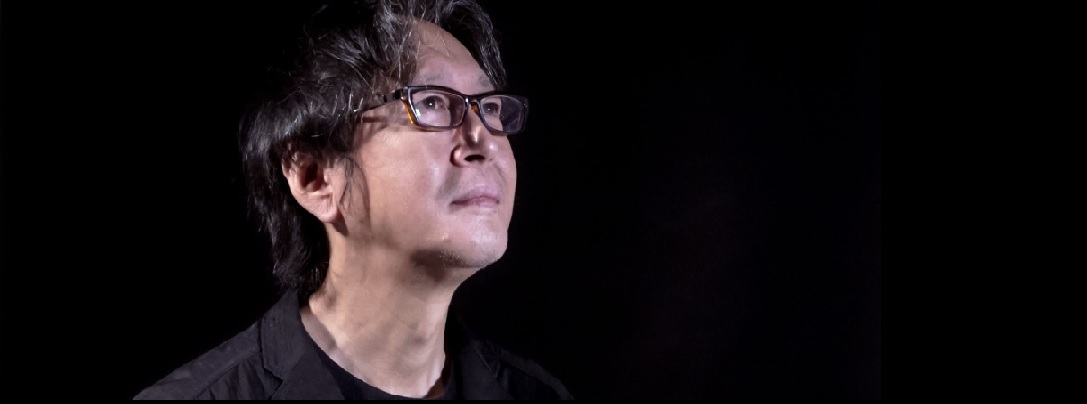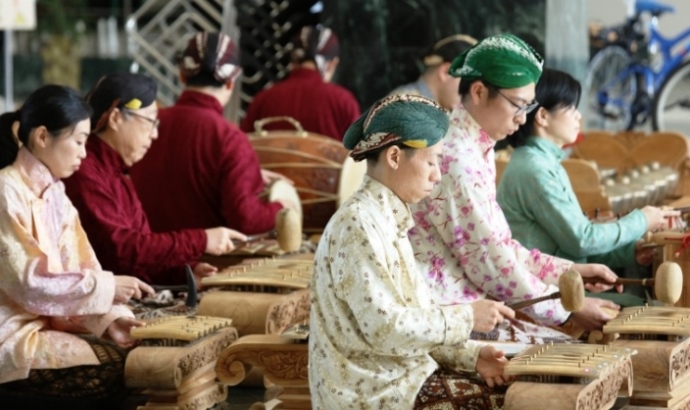Suntory Hall Summer Festival 2023
MASAHIRO MIWA, The Producer Series 2023
In this year, the Producer Series features Masahiro Miwa, the Japanese composer known for his diverse output including works based on the method known as algorithmic composition. He talks about his vision and concept for the "Producer Series 2023".

A long time ago, Mr. Shin Nakagawa who commissioned me a new work for Gamelan, said that “the Gamelan is always echoing and it appears and hides from humans.” It may be my own fantasy, but ever since, I have been concerned about the idea that this music was not created by humans for human beings. No matter how diverse the human culture may be, there will never be culture without music. It means that ancient and modern humans have always heard something from the universe through music. Of course, humans hear God from a sacred song, but even if it is a love song, they cannot help but share something indescribable called love through music.
In this summer of 2023, what should I do at Suntory Hall, the renowned venue for Western music in Japan, or rather, what can I do that would be meaningful?
Since the Meiji period, we have been accepting Western art and Western music while distancing ourselves from our traditional culture, but I think now is the time for us to think about this history. Needless to say, Western music has a very unique nature among the many types of music created on the earth. Because it can be notated, the same musical work can be recreated (performed) repeatedly, can be analyzed, and can be re-composed. As a result, it became possible for a complex orchestral work that premiered today in Tokyo to be performed again next month by German musicians in Berlin. Of course, this is a wonderful achievement. In the past some people have seriously said, “this is why Western music has universality.” But, what did this wonderful achievement bring to us? Did this musical achievement make humans on the earth understand each other more deeply? Has it made people trust each other across borders, live in peace and cherish nature? Rather, it seems to me that we have abandoned something important in exchange for this wonderful achievement. This is similar to what modern humans gave up when they decided they could not live without continuous power supply and powerful technology including AI that transcends humans. As is evident from the invention of mensural notation, Western music is also one of the consequences created by the logical and rational kind of human intellect. But was such intellect the only universal way forward in human history? I doubt it, and even if it were, can humanity continue to uphold this in the future?
For a long time, I have been thinking about “music that might have been”. I don’t mean “new music”, but music that does not exist in reality but could have existed. One could say it’s close to imagining a fictitious traditional performing art. It was during such a process that I came across “real” Gamelan music. Naturally, this music had a solid cosmology that far exceeded an individual's imagination of “music that might have been”. And it was equipped with concreteness, diversity and clarity different from the logic and rationality of Western music. I felt as if I was being mocked for fantasizing about “music that might have been.” Perfect and precise in every sense — instruments, tuning, and performing forces — Gamelan music displays a wisdom that can be a key to rethinking the Western kind of intellect and the modern human world that is dominated by it.
Of course, people all over the world who have taken Gamelan music seriously would say this is nothing new. Rather, what we should think about is the difficulty of creating Gamelan works in modern times. Is this even possible? For the system of commissioning and presenting new works in contemporary music (in a concert setting) itself is a consequence of Western music history. In other words, while the Gamelan I heard in Indonesia was precisely the music of the community operated in spaces where people live, a premiere of a new work for Gamelan given in a concert hall, which is completely isolated from the external environment, occurs within the framework of the Western music system. In this situation, one fears that such music will be viewed as novel content, just like works such as music and videos that are viewed through media devices. As a result, my expectations for the kind of intellect implied by Gamelan could also be dismissed as one of the quirky ideas within the framework of “universal” Western music.
That may be the case. But maybe that is not the case from now on. Anyhow, what I want to hear now are new works for Gamelan attempted by composers who live in the same time and space as me. Just as the age of cultural anthropologists travelling to uncivilized places carrying recording equipment and conducting field research is in the past, these composers are now creating works that are free from the context of Western music. They don’t look at Gamelan music with curious eyes, but learn from the Gamelan very naturally and connect it to their own expression. They have the sensibility and ability to think one way when writing for a triple-woodwind orchestra and another way when writing for the Gamelan. Therefore, it is probably not necessary for them to be concerned about the issue of “what Western music has abandoned”. However, if these new works can call up this question, then I would not think that these premieres of commissioned works were meaningless, even if they will soon become absorbed into Western music again.
(Translated by keikoushiryou)
-
 Javanese gamelan ensemble Marga Sari
Javanese gamelan ensemble Marga Sari
